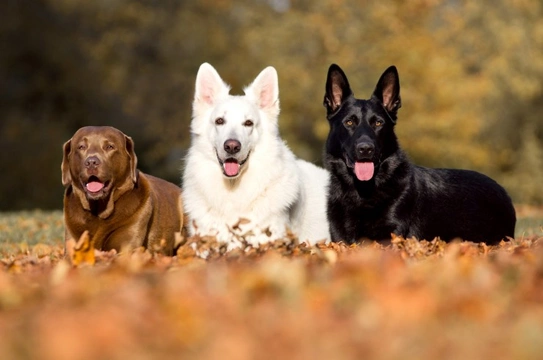
How can you tell if the dog you’re considering is the right one for you?
Deciding to get a new dog or puppy can be one of the most exciting times of your life, and getting things right means that you will spend the next decade or hopefully much more with a loyal, loving best friend and companion that can really enrich your life.
However, picking the right dog or puppy in the first instance is also a very highly loaded decision, and making the wrong choice can result in a lot of heartache and unhappiness for both you and the dog, which might even culminate in rehoming if you really can’t cope of you and the dog are making each other miserable.
Making the right decision on your future dog is not easy, particularly given that you are only likely to have a limited time to make a decision when you find your potential match; but getting things right from the start is as important as it is difficult! So, how to proceed?
In this article, we will share some advice and guidance on how to tell if the dog or puppy that you are considering is right for you, in order to avoid potential pitfalls.
Narrow down your selection first
Before you start browsing adverts, visiting shelters or breeders and otherwise being proactive about looking for one specific dog, narrow down your options as far as possible by ruling out dogs that will not be suitable. The criteria that you should use to do this are fairly exhaustive, and encompass factors such as size, breed, personality, temperament, energy levels and appearance, but you should be able to narrow your hunt down to a fairly specific type, breed or small selection before you start browsing in earnest.
Don’t rush, even if you feel rushed
As mentioned earlier on, the process of picking out the right dog and agreeing to have him or her can feel rather pressured, as you will always be aware that if you do not commit, someone else might come along and take the dog before you have decided.
However, this is not a good reason to rush into something or commit to a dog if you are not 100% sure-there will always be other dogs down the line, and it is better to miss one potential good choice than it is to end up with the wrong one.
Have a plan
Before you go to look at a particular dog or visit a shelter, have a plan firmly set in your mind for how you will proceed when you get there-in terms of what you want to ask the people selling or rehoming the dog, the things that you want to find out about, and any firm deal-breakers that would let you know that the dog would not be a good fit.
Also, have a clear plan about how you want to interact with the dog and what you want to see from their behaviour and activities when you view them, rather than just going in without a plan and forgetting all about your plan while faced with a new furry friend!
Be open minded-within reason
It is important to narrow down the type of dog that you want to a reasonable range that will be realistic for you in terms of their energy levels, size, personality and other core traits. But it is also ok to be open minded about some of these things within reason-and you might find that the dog that catches your eye or pulls on your heartstrings is rather different than you had initially envisioned!
It is perfectly fine to pick a dog that looks the complete opposite of what you thought you wanted, or is a bit older or otherwise not a cookie-cutter example-but tread carefully when it comes to issues such as size, energy levels and personality!
Remember that dogs (and people) change over time
It is also important to be realistic about how life with your new dog will proceed once you get home. Dogs within a shelter environment will not be at their best, and once they have settled in with you, they might become much calmer and more relaxed, or much more lively and confident!
When it comes to puppies, viewing a litter may give you an idea of which pup is dominant, which quiet and which is going to be a tearaway, but puppies in particular mature and develop in different ways, and so factor this in!
Your own actions can change your dog
Finally, never lose sight of the fact that the way that you treat, handle and care for your dog also has a direct, large impact on their personality and temperament too. If you adopt a dog because it is impeccably well behaved and a pleasure to be around but then let it eat off your plate and not follow any rules, you will soon find that the dog becomes quite different, of your own making.
Additionally, a shy, nervous or poorly socialised dog will often blossom into the most loyal companion once they begin to feel safe with you, and have all their needs met!



